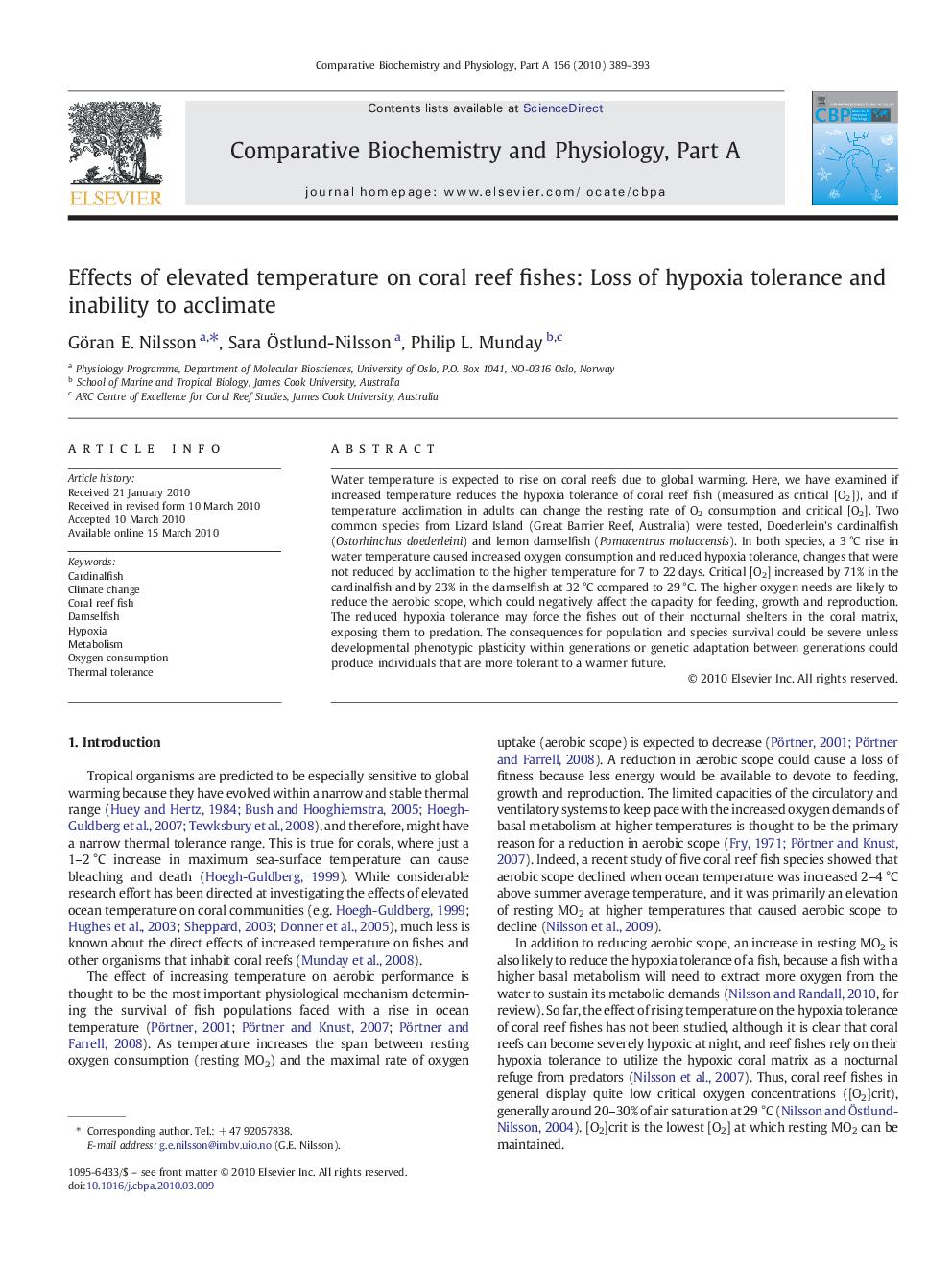| Article ID | Journal | Published Year | Pages | File Type |
|---|---|---|---|---|
| 1972951 | Comparative Biochemistry and Physiology Part A: Molecular & Integrative Physiology | 2010 | 5 Pages |
Water temperature is expected to rise on coral reefs due to global warming. Here, we have examined if increased temperature reduces the hypoxia tolerance of coral reef fish (measured as critical [O2]), and if temperature acclimation in adults can change the resting rate of O2 consumption and critical [O2]. Two common species from Lizard Island (Great Barrier Reef, Australia) were tested, Doederlein's cardinalfish (Ostorhinchus doederleini) and lemon damselfish (Pomacentrus moluccensis). In both species, a 3 °C rise in water temperature caused increased oxygen consumption and reduced hypoxia tolerance, changes that were not reduced by acclimation to the higher temperature for 7 to 22 days. Critical [O2] increased by 71% in the cardinalfish and by 23% in the damselfish at 32 °C compared to 29 °C. The higher oxygen needs are likely to reduce the aerobic scope, which could negatively affect the capacity for feeding, growth and reproduction. The reduced hypoxia tolerance may force the fishes out of their nocturnal shelters in the coral matrix, exposing them to predation. The consequences for population and species survival could be severe unless developmental phenotypic plasticity within generations or genetic adaptation between generations could produce individuals that are more tolerant to a warmer future.
